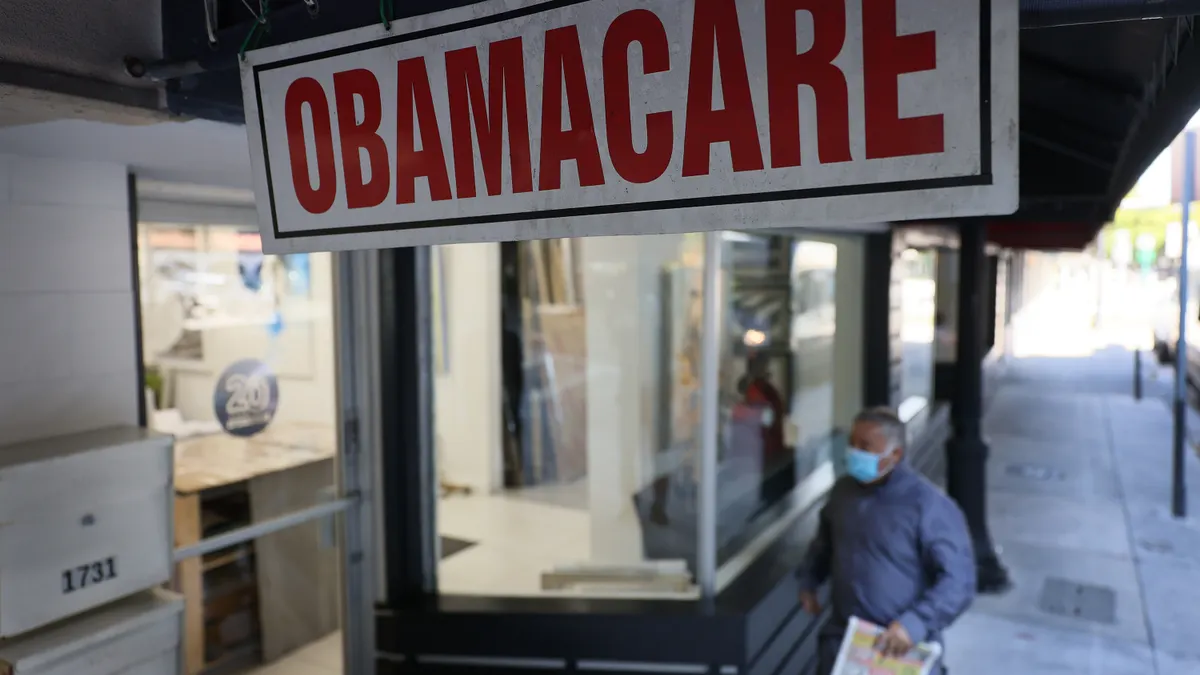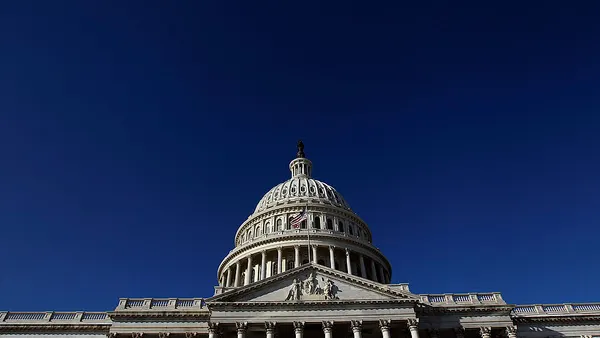Dive Brief:
- A Maryland district court on Friday temporarily paused major provisions of the Trump administration’s controversial final rule remaking the Affordable Care Act marketplaces.
- The changes would have gone into effect on Monday. Up to 1.8 million people were expected to lose coverage as a result of the rule.
- As such, the stay is a victory for proponents of expanded ACA coverage, including health insurers. The Trump administration could still appeal the court’s decision.
Dive Insight:
The CMS rule finalized in June significantly shrunk sign-up windows and heightened eligibility verification for ACA plans. Regulators said the changes were necessary to crack down on fraud and abuse in the ACA exchanges, a key priority for conservatives. However, health policy experts and patient advocates slammed the rule as overly aggressive, and said it appeared aimed at shrinking the size of the exchanges, not targeting fraud.
In early July, nonprofit Democracy Forward filed a lawsuit challenging the rule on behalf of three cities — Chicago, Baltimore and Columbus —, the physician advocacy organization Doctors For America and small business lobbying group Main Street Alliance.
The suit argues that the Trump administration violated the Administrative Procedures Act in issuing the rule, and that they would shoulder higher costs and see their members lose coverage if it goes into effect.
On Friday, Maryland Judge Brendan Hurson granted the plaintiffs’ request for a preliminary injunction while the case advances, determining that they are likely to succeed in the suit.
Hurson stayed seven of the rule’s most consequential provisions, including the creation of a $5 premium penalty for individuals who automatically reenroll in coverage and a policy disqualifying people who fail to reconcile tax credits with their income from receiving subsidies.
The judge also paused the elimination of guaranteed coverage for people who are overdue to pay their premiums; the imposition of higher income verification standards if exchanges find inconsistencies in tax data; and a policy requiring stricter eligibility checks ahead of a special enrollment period.
Changes to a formula used to sort ACA plans into different coverage tiers were also put on pause.
Hurson allowed changes to CMS’ methodology for calculating premium adjustments and the elimination of a 60-day window for ACA enrollees to resolve inconsistencies in their income data to continue.
The judge didn’t address the rule’s shortening of the ACA open enrollment period.
“Today’s ruling is a critical victory for patients and for the promise of the Affordable Care Act,” Dr. Christine Petrin, the board president of Doctors for America, said in a statement Friday. “By blocking the Trump-Vance administration’s dangerous rule, the court has protected millions of Americans from losing coverage, facing higher costs, and being denied essential benefits.”
The stay is also a boon for health insurers, which are already gearing up for significant ACA enrollment losses next year with or without the rule. Millions of Americans are expected to leave the ACA exchanges due to the expiration of more generous subsidies for coverage in 2026. But Hurson’s decision reduces the risk of further enrollment losses and a more drastic deterioration of the risk pool, Jefferies analyst David Windley wrote in a note Monday.
The stay puts the policies on hold until the case concludes, which will likely take months. Still, Hurson’s decision represents a short-term relief, not a total stay of execution for the reforms. The Trump administration could appeal the judge’s decision to a friendlier court. Red states could also elect to implement the changes for their own exchanges. And, the GOP’s tax and policy megabill signed into law in July includes similar policies restricting the ACA, including effectively ending autorenewals and requiring enrollees to update income information more frequently or risk losing coverage.
The industry is also still waiting on a decision in a second challenge to the same rule filed by 20 Democrat states and the governor of Pennsylvania in July in a Massachusetts district court.













